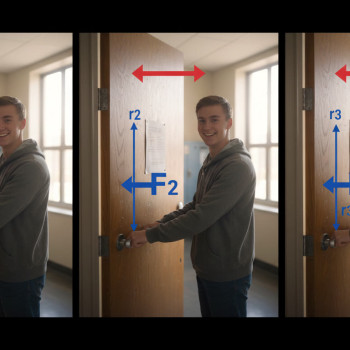Why a “Writing Clinic” Focused on Language Background Helps
We all make mistakes — even the best writers. But the pattern of those mistakes often depends on the languages you grew up with. A Spanish speaker might battle gender agreement; a Mandarin speaker might struggle with articles; a French speaker might misplace adjective order. Recognizing those patterns is a game-changer. Instead of treating grammar as a long list of random rules, you target the handful of habits that are most likely to trip you up. That makes study time efficient and results visible fast — which is exactly what students preparing for AP exams want.
This blog reads like a friendly clinic: we’ll diagnose common errors by language background, show you simple fixes, give real AP-style examples, and offer practice strategies. There’s also a compact reference table you can print or screenshot. And if you want guided practice, Sparkl’s personalized tutoring — 1-on-1 guidance, tailored study plans, expert tutors, and AI-driven insights — can accelerate progress by focusing on the errors you actually make.
How Language Background Shapes Grammar Errors
Languages differ in the way they encode things like tense, articles, word order, and agreement. When you learn English as an additional language, patterns from your first language (L1) often transfer into English (L2). Sometimes this helps; other times it causes predictable errors. Understanding those transfer patterns helps you focus on corrections that matter for AP essays, multiple-choice questions, and timed writing.
Common Categories of Transfer Errors
- Articles and Determiners (a, an, the) — missing, incorrect, or overused.
- Verb Tense and Aspect — wrong tense or incorrect progressive/perfect forms.
- Subject-Verb Agreement — mismatch in number or person.
- Prepositions — wrong choice or missing prepositions.
- Word Order and Modifier Placement — misplaced adjectives, adverbs, or relative clauses.
- Pronoun Reference and Case — unclear antecedents or incorrect case (e.g., me vs. I).
- Punctuation — comma splices, missing commas, semicolon misuse.
Spanish Speakers: Agreement, Articles, and Extra Subjects
Why these errors happen: Spanish marks gender and number on nouns and adjectives, and often omits the subject pronoun because verb endings show person and number. That background shapes common English errors.
Frequent Errors and Fixes
- Adjective-Noun Agreement (overcorrection): English adjectives don’t change for gender or number. Don’t write “the reds apples” — use “the red apples.”
- Articles: Spanish uses definite articles more frequently (e.g., “La vida es bella” → “Life is beautiful”). Spanish speakers sometimes add unnecessary articles in English: “The life is good” instead of “Life is good.” The fix: decide whether the noun is general (no article) or specific (the).
- Subject Pronouns: Spanish often drops subject pronouns. In English, you usually need them: “(Yo) estudio” → “I study,” not “Study hard.” Remember to include the subject in English sentences.
- Prepositions: Spanish uses different prepositions for certain verbs (e.g., “pensar en” → “think about,” but sometimes students write “think on”). Learn verbs + preposition collocations in chunks: “think about,” “depend on,” “believe in.”
AP Writing Tip for Spanish Speakers
When writing timed AP essays, use a quick checklist before submitting: subject present? correct article usage? noun-adjective order? These three items are quick to scan and catch many Spanish transfer errors.

Mandarin (Chinese) Speakers: Articles, Plurals, and Relative Clauses
Why these errors happen: Mandarin doesn’t have articles in the same way English does, and plurals aren’t marked in the same way. Relative clauses and certain prepositions are also structured differently.
Frequent Errors and Fixes
- Articles (a/an/the): Mandarin learners often omit articles: “I saw dog” instead of “I saw a dog.” Rule of thumb: use “a/an” for nonspecific countable nouns and “the” for specific, previously mentioned nouns.
- Plural Marking: Forgetting -s on plural nouns: “three cat” → “three cats.” When a number precedes a noun, the noun must be plural.
- Relative Clauses: Word order can be tricky: Mandarin puts modifiers differently. In English, the relative clause follows the noun: “The book that I read” (not “that I read the book”).
- Be Verbs and Tenses: Mandarin expresses some states without an explicit “to be.” Make sure to include be-verbs and form past/present properly: “He late” → “He is late.”
AP Writing Tip for Mandarin Speakers
For synthesis and rhetorical analysis essays, clarity of reference matters. Use definite articles to mark ideas you’ve introduced, and check that every noun with a number or quantifier is plural. These fixes improve both grammar and rhetorical precision.
French Speakers: Agreement, False Friends, and Sentence Rhythm
Why these errors happen: French shares many cognates with English but also has false friends (words that look the same but mean different things). French marks agreement more than English, which leads to overcorrection or incorrect placements of adjectives.
Frequent Errors and Fixes
- False Friends: Words like “assist” (which in English implies help, but in French “assister” often means to attend) can mislead. Practice high-frequency false friends and prefer simpler synonyms if unsure.
- Adjective Placement: In French, many adjectives follow the noun; in English, adjectives usually precede it: “une voiture rouge” → “a red car,” not “a car red.”
- Prepositions: Certain verbs take different prepositions. Memorize common verb-preposition pairs: “depend on,” “rely on,” “participate in.”
AP Writing Tip for French Speakers
Rhetorical flow matters in AP essays. Replace risky cognates with clear English words you know for sure. That avoids subtle meaning errors and improves tone.
Arabic Speakers: Articles, Pronouns, and Verb Forms
Why these errors happen: Arabic grammar uses different article conventions, has different pronoun systems, and employs verb-root patterns that don’t map neatly onto English tenses.
Frequent Errors and Fixes
- Definite Article Overuse or Omission: Arabic’s definite article “al-” influences when learners use “the” in English. Practice when to use “the”: for previously mentioned, unique, or specific nouns.
- Pronoun Agreement: Arabic verbs incorporate pronoun information; English requires explicit subjects and pronouns. Make sure to include subjects: “He said” rather than “Said.”
- Verb Tense and Aspect: Arabic verbal aspect differs; watch for correct English tense and progressive forms: “He go yesterday” → “He went yesterday.”
AP Writing Tip for Arabic Speakers
Because Arabic emphasizes context, English learners sometimes leave pronouns ambiguous. In comparative or argumentative essays, be explicit: clearly name your subject each time the reference might be unclear.
Russian Speakers: Articles, Word Order, and Punctuation
Why these errors happen: Russian doesn’t use articles, has flexible word order, and uses comma rules differently. These differences lead to predictable English errors.
Frequent Errors and Fixes
- Articles (again): Omission of a/an/the is common. Learn simple heuristics: no article for general statements (“Cats are curious”), use “the” for specific items (“The cat on the roof”).
- Word Order and Emphasis: Russian flexibility can lead to unusual English word orders that sound unnatural. Stick with Subject-Verb-Object for clarity in essays.
- Comma Usage: Russian comma rules differ; English commas are often required to separate clauses and set off nonessential information. Use commas before coordinating conjunctions joining independent clauses: “I studied hard, and I improved.”
AP Writing Tip for Russian Speakers
When under time pressure, prioritize clear SVO sentences. Complex structures can look impressive but risk grammatical errors and lower clarity scores. Save complexity for drafts and revisions.
Portuguese and Italian Speakers: Articles and False Cognates
These Romance languages produce similar transfer errors: overuse of articles, adjective placements, and enticing false friends like “actual” (meaning current in English vs. “atual” in Portuguese meaning current as well but “actual” in English often means real).
Frequent Errors and Fixes
- Article Overuse: Drop the article when speaking in general terms: “Music is life” not “The music is life” unless referring to specific music.
- False Friends: Watch words like “eventually” (not “eventualmente”) and “sensible” (not “sensível”). When unsure, rephrase with a simple verb: “it happened” instead of “it eventually occurred.”
Universal Errors Worth Fixing (All Language Backgrounds)
Some errors are universal across language backgrounds. These are high-impact fixes for AP performance because they improve clarity and precision.
High-Impact Fixes
- Subject-Verb Agreement: Singular subjects need singular verbs. When in doubt, identify the true subject and conjugate accordingly.
- Pronoun Reference: Make pronouns clearly refer to one antecedent. Replace vague “this” or “they” with a noun when clarity is at stake.
- Comma Splices: Don’t join independent clauses with only a comma. Use a period, semicolon, or coordinating conjunction plus comma.
- Parallel Structure: Keep lists and comparisons in the same grammatical form: “to write, to edit, and to revise” not “to write, editing, and revise.”
- Conciseness and Tone: Eliminate redundancy and choose precise vocabulary — especially important in timed AP essays.
Practice Strategies That Actually Work
Grammar drills alone can feel punishing. Here are strategies that match how the brain learns language and writing.
1. Focused Error Logs
Keep a simple document of the 8–12 errors you make most often. Every time you write, mark which errors appear. Over time you’ll see the list shrink. This is the same targeted approach used by many tutors and by Sparkl’s personalized plans — they diagnose patterns and practice what matters.
2. Contrastive Sentences
Create pairs of correct and incorrect sentences that highlight the error. For example:
- Incorrect: “He have three books.”
- Correct: “He has three books.”
Practicing contrastive examples trains your ear and eye to detect what’s off.
3. Timed Micro-Revisions
Set a 7–10 minute timer and revise one paragraph of your writing, focusing only on grammar and clarity. This builds fast proofreading habits for AP exam timing.
4. Read Aloud and Record
Reading your paragraph aloud (and optionally recording it) helps you hear missing words, wrong rhythm, or awkward constructions. Often you’ll catch what your eyes skip.
Reference Table: Common Errors by Language Background
| Language Background | Top 2–3 Common Errors | Quick Fix |
|---|---|---|
| Spanish | Article misuse; dropped subject pronouns; adjective-noun order | Decide specific vs. general for articles; include subject; use adjective before noun |
| Mandarin | Missing articles; plural omission; relative clause word order | Use a/an for nonspecific countables; pluralize after numbers; put relative clause after noun |
| French | False friends; adjective placement; prepositions | Prefer safe synonyms; put adjectives before nouns; memorize verb+prep pairs |
| Arabic | Article confusion; implicit pronouns; tense errors | Practice definite vs. indefinite; state subject explicitly; review past/present forms |
| Russian | Missing articles; flexible word order; comma rules | Learn article heuristics; use clear SVO order; use commas to join clauses properly |
| Portuguese/Italian | Article overuse; false cognates | Drop articles for general nouns; replace risky cognates with clear alternatives |
Quick AP Essay Checklist — Grammar-Focused
- Is every subject explicit or clearly implied?
- Are articles used appropriately for specific vs. general nouns?
- Do verbs agree with their subjects in number and person?
- Are pronoun references clear and unambiguous?
- Are there any comma splices or run-on sentences?
- Is parallel structure maintained in lists or comparisons?
When to Get Help — And How Sparkl Fits In
Self-study works if you’re disciplined, but targeted, expert feedback speeds progress. If you notice the same errors despite practice, a tutor can diagnose subtle issues — not just the mistake but the underlying cause. That’s where Sparkl’s personalized tutoring can be especially helpful: one-on-one guidance, a tailored study plan that focuses on your habitual errors, expert tutors who know AP rubrics, and AI-driven insights that track patterns across essays. Tutors can model corrections, offer real-time explanation, and give practice prompts designed to rebuild weaker structures into automatic habits.
Examples: Before and After (AP Essay Style)
Seeing revisions side-by-side makes abstract rules concrete. Below are small excerpts that could come from an AP Rhetorical Analysis or Argument essay.
Example 1 — Subject-Verb Agreement
Before: “The collection of data show the researcher’s bias in the experiment.”
After: “The collection of data shows the researcher’s bias in the experiment.”
Explanation: The subject is “collection” (singular), so the verb should be singular “shows.”
Example 2 — Article and Reference Clarity
Before: “A president can claim success when economy is strong.”
After: “A president can claim success when the economy is strong.”
Explanation: “Economy” here refers to the specific national economy; use “the.”
Example 3 — Pronoun Ambiguity
Before: “When Michael talked to Peter, he seemed nervous.”
After: “When Michael talked to Peter, Michael seemed nervous.”
Explanation: Replace “he” with the noun to remove ambiguity — crucial for clarity and scoring in AP essays.

How to Track Your Progress — A Simple Weekly Plan
Track progress with a plan that’s realistic and measurable. Here’s a template you can follow for four weeks.
- Week 1: Create an error log and collect 10 writing samples (daily short paragraphs). Identify the top 3 recurring errors.
- Week 2: Drill contrastive sentences for your top 3 errors; do 10 micro-revisions per day; read aloud once per sample.
- Week 3: Integrate corrections into timed AP-style essays; use checklist before finalizing each essay.
- Week 4: Simulate a full AP exam writing section; review error log and update it with new patterns. Seek targeted tutoring for persistent issues.
Final Thoughts — Make Grammar Work for Your Voice
Grammar isn’t a prison. It’s the set of tools that lets your ideas come through clearly and convincingly. When you target the errors shaped by your language background, progress is faster and less frustrating. Use contrastive practice, keep an error log, and revise strategically. When time is tight and you want guaranteed progress, consider guided help: Sparkl’s personalized tutoring, tailored study plans, expert tutors, and AI-driven insights can focus on the exact patterns that slow you down and help build stronger, automatic habits.
Above all, keep writing. Clear, practiced writing builds confidence — and that confidence shows on the AP exam long before the final sentence is written.
Appendix: Two Mini Practice Exercises (Quick)
Exercise A: Fix the Sentence
- Original: “People believes that education are important in today’s society.”
- Task: Identify errors and rewrite the sentence correctly.
Exercise B: Choose the Best Article
- Sentence: “____ education system in the country is undergoing reform.” (Choose: A / The / — )
- Hint: Are we referring to a specific system already discussed, or speaking generally?
Answer key (no peeking): Exercise A → “People believe that education is important in today’s society.” Exercise B → “The education system in the country is undergoing reform.”
Need Personalized Feedback?
If you’re serious about raising your AP writing score, targeted practice plus timely feedback is the best route. A tutor who knows common transfer errors and the AP rubric can accelerate improvement — especially when they use a tailored plan and track your progress across drafts. Sparkl’s approach combines human coaching with AI-driven insights to make each session efficient and focused on your most impactful errors.
Good luck — keep practicing, keep revising, and remember: the clearer your grammar, the louder your ideas will speak on exam day.

















No Comments
Leave a comment Cancel